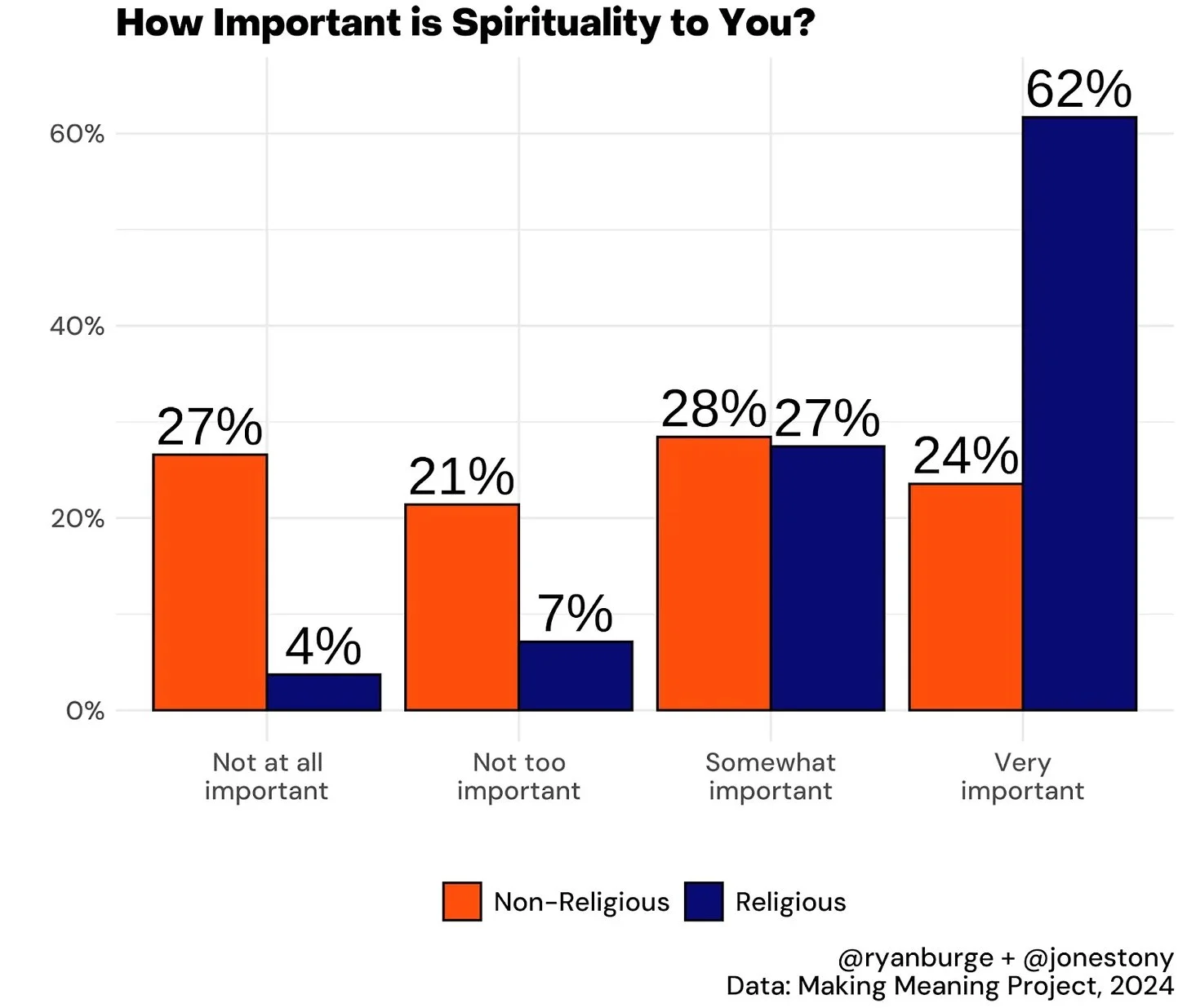Are The Nones Replacing Religion With Spirituality?
(ANALYSIS) One of the things that we often hear when we tell folks that we are working on a project that is studying the growing number of nones in the United States is something along the lines of, “Oh, I’m not that religious, but I consider myself highly spiritual.”
It’s a concept that we talk about a lot in social science. So much so that we have a term for it: SBNR (Spiritual But Not Religious). It’s been written about for decades by scholars of American religion and it’s become part of the lexicon among religious leaders throughout the United States.
In fact, when we created our four category typology of the nones, one of the groups that we identified in the data were exactly these people — they scored relatively high on measures of spiritual importance but very low on traditional religious questions like church attendance. So, we do agree that there is a subset of the nones who do seem to have a deep well of spirituality.
But there’s a blanket statement we see bandied about a lot that we want to challenge in this post. It’s, “Oh, the decline of religion is probably not a problem because all kinds of nones are just replacing church with yoga, meditation, crystals, etc.” But the data tells a different story: the nones just aren’t that spiritual, either.
Let me start by just showing you a simple question that we asked to all respondents, “How important is spirituality to you?” The response options ranged from “not at all important” to “very important.”
It’s pretty hard to look at this graph and come to any other conclusion than: religious people are significantly more spiritual than non-religious people. In our survey, 62% of religious respondents (coming from any faith tradition like Protestant, Catholic, Jewish, Muslim, etc.) said that spirituality was very important to them. Among atheists, agnostics and nothing in particular folks it was only 24%.
Just reflect on that for a minute because it flies in the face of how lots of people think about these two concepts. The viewpoint often described is: spirituality replaces religion.
The assumption there is that non-religious people have a void and spirituality rushes in to fill that. But that’s not what we see here — spirituality does not supplant religion. Those two concepts are actually highly correlated with each other.
You can read the rest of Ryan Burge’s post at his Substack page.
Ryan Burge is an assistant professor of political science at Eastern Illinois University, a pastor in the American Baptist Church and the co-founder and frequent contributor to Religion in Public, a forum for scholars of religion and politics to make their work accessible to a more general audience. His research focuses on the intersection of religiosity and political behavior, especially in the U.S. Follow him on X at @ryanburge.

